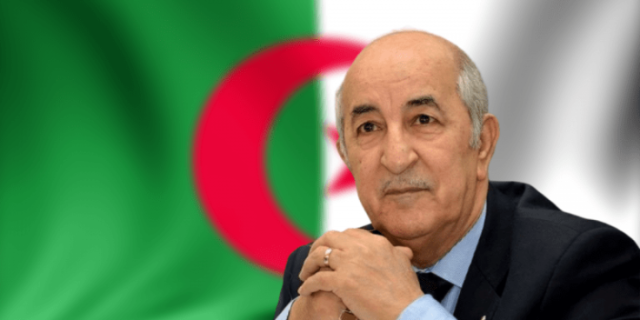Algeria's presidential elections since the 1990s have been marked by significant political developments and varying degrees of peacefulness.
The 1995 Presidential Election held during the Algerian Civil War had the first multiparty election since the country's independence.
In that election, Liamine Zéroual won with 61% of the votes. Observers opined that the election was marred by violence and allegations of fraud.
Subsequently, in 1999 Presidential election, Abdelaziz Bouteflika won amid boycotts by six other candidates who withdrew on the grounds of an alleged electoral fraud. The election was contentious but less violent than the previous one.
Official figures showed the turnouts of voters to be 61% with Bouteflika winning easily.
However, the other candidates claimed that the turnout was much lower, with Ibrahimi estimating it to be around 25%.
In 2004, Presidential election saw Bouteflika win a re-election with 85% of the votes. The election was relatively peaceful but heavily criticised for lack of transparency.
However, in 2009 Presidential poll, Bouteflika again won a third term with 90% of the votes after a constitutional amendment allowed him to run again.
Allegations of fraud reportedly persisted, but the election was said to be largely peaceful.
Bouteflika, despite his health challenges won the 2014 Presidential election for the fourth term with 81% of the votes. The election was considered peaceful but criticised for its lack of competitiveness.
Presidential elections were also held in Algeria on 12 December 2019.
The election had originally been scheduled for 18 April, but was postponed due to sustained weekly protests against plans by the incumbent president Abdelaziz Bouteflika to run for a fifth term.
Bouteflika resigned on 2 April and Abdelkader Bensalah was elected acting President by Parliament a week later.
On 10 April the election was rescheduled for 4 July and on the 2nd of June, the Constitutional Council postponed the elections again, citing a lack of candidates.
Following the development, a new electoral authority, Autorité nationale indépendante des élections (ANIE), was created in mid-September as an alternative to the existing Haute instance indépendante de surveillance des élections [fr] (HIISE) defined by the 2016 Constitution.
The election was rescheduled for 12 December 2019 and ANIE, of disputed constitutional validity, announced five valid candidates on 2 November.
This announcement created a strong protest as Algerian protesters rejected the 12 December election and called for a radical change in the electoral system to take place first.
The Forces of the Democratic Alternative (FDA) alliance and the Justice and Development Front also called for boycotts of the 12 December election, and the FDA called for creation of a constituent assembly.
After two decades of being ruled by Abdelaziz Bouteflika, Algerians elected former Prime Minister Abdelmadjid Tebboune as the new Algerian president.
Tebboune received over 58% of votes in 2019 poll. Tebboune served as prime minister for three months before being sacked in May 2017.
The election results placed him far ahead of his closest rival, former tourism minister and the head of Elbinaa Islamist party, Abdelkader Bengrine, who claimed 17.38% of the votes.
The incumbent President Abdelmadjid Tebboune will face opposition in the September 7 election, but observers believe he remains the frontrunner.
Tebboune had said, "I filed my candidacy as stipulated by law. I thank all those who support me, parties, organisations and citizens."
President Tebboune typically has higher name recognition among the voters. This might however give him an immediate advantage over his opponents who are not as popular as him.
By virtue of incumbency, the president has direct access to government resources which can be utilised for campaign purposes. This includes staff support, access to constituent databases, and sometimes even discretionary funds.
It is believed that campaign finance may not be his problem; he often has an easier time raising campaign funds compared to other opponents and he may receive donations from interest groups, businesses, and individuals seeking to maintain influence with someone already in power.
The president's wider media coverage simply by virtue of his position may translate into free publicity and more opportunities to shape public perceptions.
Also, voters may consider him more suitable as he has the experience as well as a proven track record, which can bolster their credibility and trustworthiness compared to less experienced challengers.
The President also has the advantage of being able to focus his campaign efforts strategically, targeting swing voters and key demographics based on their previous electoral data.
These factors collectively may contribute to the significant advantage that the president may win the elections, making it challenging for challengers to unseat him.
Except the opponents work much harder, the President may carry the day as history has shown that no incumbent President has been unseated in Algeria's political history.
In political contest, the pendulum can always swing. Therefore, Algerians should keep their fingers crossed until September 7 when the electorate will choose the next president for the country.




















